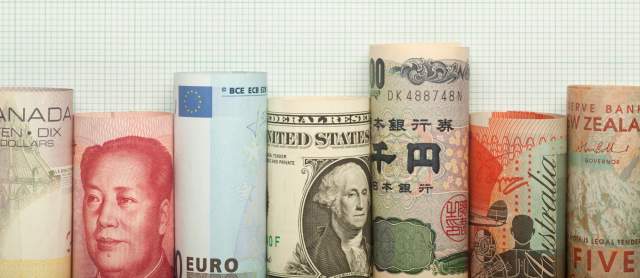Understanding market trends is essential for those involved in travel, conducting business or managing investments. Market trends define the general direction that economic indicators or prices are changing over a particular time. They are influenced by a variety of factors, such as geopolitical events, economic data and consumer behaviour. Travelers can benefit from understanding trends to help them optimize their currency exchanges and to plan their budgets. In the business world, being up to date on trends can be a great method to determine pricing strategies and take informed choices. Investors can use market developments to make informed decisions about buying or selling assets. Here are ten of the top strategies to track and effectively use market trends for your financial endeavors.
1. Stay updated with Economic Indicators
Market trends are heavily influenced by indicators of the economy that include unemployment rates, GDP growth rates, levels, inflation rates and consumer mood. Regularly monitor these indicators to get a better understanding of the general health of the economy and potential currency movements. You can interpret market conditions better through websites such as those from the Bureau of Economic Analysis (BEA) or Federal Reserve.
2. Utilize Financial News Sources
The most reliable financial news sources that include Bloomberg, Reuters, and CNBC provide up-to-date information about market trends and developments that affect various sectors. Follow newsletters and market analysts on social media channels to stay informed about changes in the market as well as economic forecasts and experts' opinions. This information can provide background for your budgeting for travel and business decisions as well as investment strategies.
3. Leverage Online Analytical Tools
TradingView, MarketWatch and Yahoo Finance are platforms that provide historic data, charts and technical analysis to help identify trends in the market. These tools will help you identify patterns, market trends, and even possible turning points. They also help you to make educated decisions about your investment and travel plans, business decisions or investment management.
4. Understanding seasonal trends
The seasonal trends may influence pricing and demand in many markets. The peak of tourism can occur at certain seasons and can affect demand for currency and rates. Understanding these seasonal fluctuations can help you manage your travel budget more efficiently or adapt your business strategy to match consumer behaviour. For instance, you can adjust currency exchange rates according to the fact that rates tend to be more favorable during off-peak seasons. occur.
5. Geopolitical Events: Monitor Geopolitical Trends
Geopolitical factors, such as trade agreements and elections can affect the market and the value of its currency. Be aware of international events that may impact the regions in which you travel, do business, or invest. For instance, a change in the policy of a government could cause changes in the currency in a particular country that could affect your investment or travel budget.
6. Social Media is a great way to get real-time information
Twitter and LinkedIn For instance, Twitter and LinkedIn offer real-time information on the latest economic and financial news. Follow top economists and analysts as well as leaders in the field to gain more insight into the latest market developments. Joining relevant online communities can help you exchange information on the market and keep informed of any upcoming changes that could affect your financial decisions.
7. Examine historical data to identify trends
Historical data can provide valuable insight on how the markets have performed when confronted with similar conditions. It is possible to make precise predictions by analyzing past trends. This approach is particularly beneficial for investors who wish to understand long-term trends or companies that are making pricing strategies based on historical consumer behaviour.
8. Utilize Trend Analysis to Enhance Your Strategy
Trend analysis entails analyzing price data from the past to discover patterns, as well as making predictions regarding future trends. It is important to monitor currency trends for travellers to know when it's best to exchange currencies. Businesses can utilize trend analysis to design pricing strategies as well as marketing strategies. Investors use trend analysis to determine the entry and exit points for their investment. This increases the chance of earning returns.
9. Diversify Information Sources
One source of information could limit your knowledge of the market. Diversify sources by looking at diverse financial news sites and online analytical tools and economic reports. By analyzing information from different perspectives, you will be able to develop an knowledge of the market and make more informed choices.
10. Consult with Financial Advisors
If you're not sure how to interpret trends in the market, or how they might impact your financial goals, consult a professional financial advisor. These experts can provide individualized guidance based on your specific circumstances and help you devise strategies to navigate market trends efficiently. Experts can help you with budgeting, optimizing operations or managing a portfolio.
These specific strategies will assist you in navigating the complexities of business, travel and investment management more efficiently. Understanding trends in the market will help you to make more informed financial choices that are aligned with your objectives in personal or professional life, ultimately enhancing your overall financial plan. Read the recommended USD to AED for site advice including convert pounds to dollars, dollor to inr, usd to rmb, usd to jpy, dollar to rmb, us dollar to mexican peso, usd to mexican peso, mexican peso to usd, usd to jpy, 1 usd in rupees and more.

Ten Tips To Choose The Right Currency To Use In Your Country Of Choice With Rates And Exchange Rates
Understanding the currency of destination is vital for anyone who wants to travel abroad, do international business, or invest on foreign markets. The local currency is what you will be using when visiting the country, or engaging with them. This can have a significant impact on your financial choices. Variations in exchange rates, conversion charges as well as the overall economic climate can impact how much money you spend on your travels or business transactions. When you have an understanding of the currency you will be using, you will be able to make better financial decisions. Here are the top 10 tips for managing your destination currency.
1. Before traveling, do some research on the local Currency
Study local currencies before visiting another country. Understanding the local currency's value in relation to your own currency is essential. Also, be familiar on its currency denominations. It is easier to manage your budget and avoid overpaying when you have this knowledge. Websites like XE.com permit you to view the exchange rate at present and previous data. This allows you to calculate what your money worth abroad.
2. Check Exchange Rates Prior to Your Trip
Being aware of these changes will allow you decide on the most suitable moment to exchange your money. You can set alerts using apps and currency tracking tools to be notified when the exchange rate is in a favorable position. You might want to exchange funds sooner if you see an upward trend in currency.
3. Currency Conversion Costs What should you Consider?
Currency exchange fees and ATM charges can vary widely among banks, currency exchange firms, or ATMs. Converting your home currency into the currency you want to use can be expensive. Examine rates offered by different providers. Consider using online platforms which offer lower costs, competitive exchange rates, and low conversion rates.
4. Make use of local currency to make Payments
Paying in your home currency is not the ideal choice when purchasing items from abroad. The need for dynamic currency conversion occurs when you use your currency. This typically results in more expensive exchange rates and charges. Paying in local currency can help you obtain better rates, cut out unnecessary charges and increase your budget.
5. You can plan your cash requirements in Advance
While credit and debit cards are used widely in a variety of countries, it's important to keep some cash on hand for smaller expenses or tips. It is also possible to require cash in places that don't accept credit cards. Examine the limits on cash withdrawals and charges for ATMs in foreign countries, and consider taking a larger sum at once to minimize charges for transactions. The convenience of having local currency on hand will enhance your experience while traveling, and will help you avoid any inconveniences.
6. Learn about Local Preferences for Payments
Payment methods differ from country to country. Cash is the king in certain countries, however credit cards and digital transactions are more prevalent in other countries. Discover the local payment practices to determine what's most well-known. This will assist you in planning your payment strategies accordingly and ensure that you have the appropriate means to make transactions with ease.
7. Business Currency Risks: Be Watchful
If you do business in a different country, bear in mind the dangers of fluctuations in currency. An abrupt drop in value of a currency that you intend to use can impact profits or general financial performance. To reduce the risk of currency fluctuations take into consideration hedging strategies, such as future contracts to secure exchange rates.
8. Track Your Spending
- Be aware of your expenditure in the currency of your destination is vital to ensure you stay within your budget while traveling. You can monitor your spending in local currency using applications that can help you budget or by keeping meticulous records of your purchases. This will allow you to not overspend on your trip and also ensure that you have enough funds.
9. Financial Regulations: You Should Be aware of your rights
Each country has its own regulations concerning cash transactions, currency exchange and reporting rules. Learn about these regulations to avoid legal problems when traveling or conducting business. For example, some countries may have limits in the quantity of cash you are able to bring in or out, while others may require you to declare transactions that are large. It is possible to navigate these rules more easily if you are aware.
10. Consult Currency Experts prior to investing
If you're looking at investments on foreign markets, think about consulting with experts in currency or financial advisors that specialize in international investment. They can help you understand the effect of fluctuations in currency on your investment portfolio, and develop strategies to effectively control risk associated with currency. Their knowledge will assist you navigate the maze around destination currencies, and improve your financial outcomes.
Learn these specific tips to manage the currency of your destination, and you will be able to navigate through the complicated world of business travel, travel and investment management more efficiently. Understanding the ramifications of currency management will allow you to make financial decisions that are aligned with your objectives and improve the overall strategy of your financial planning. Have a look at the best view website on CZK to EUR for website info including doller to rupee, usd to pakistani rupee, japanese yen to usd, convert pounds to dollars, dinar guru, us dollar to pakistani rupee, usd to jpy, aud to usd, usd to british pound, rmb to dollar and more.
